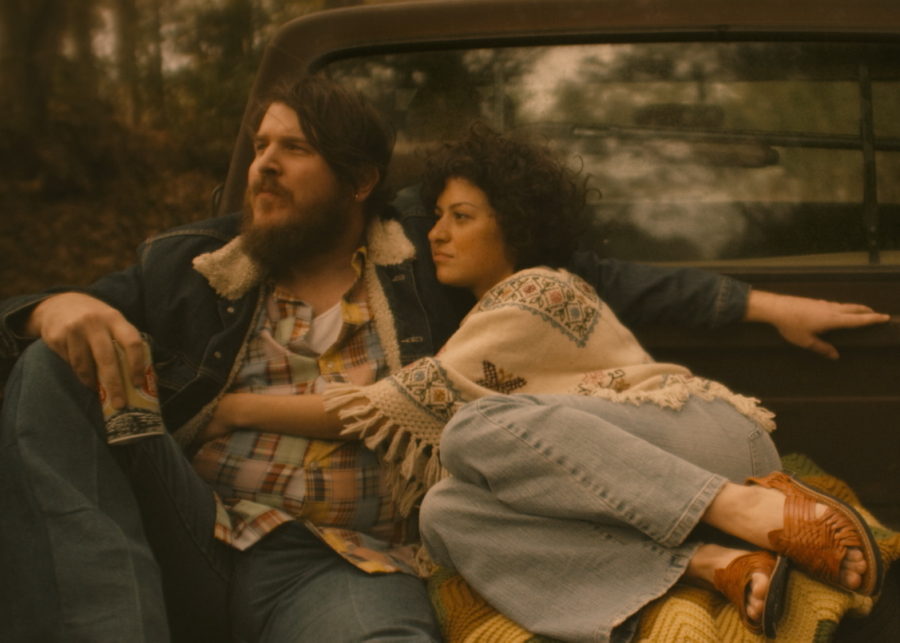‘Blaze’ and the Unsung Country Legend
Benjamin Dickey and Alia Shawkat in “Blaze.”
March 23, 2018
It’s said that little-known country blues singer Blaze Foley used to say, “Don’t wanna be no star. I wanna be a legend.” But it seems that legends can be human too. “Blaze,” directed by Ethan Hawke, tells the story of Foley, showcasing the musician’s legendary artistry and the lesser aspects of his persona — from his alcoholism and unfaithfulness to his violent tendencies.
“Blaze” is told through three interweaving narratives from Foley’s life: the day he died in 1989 following his final concert at the Austin Roadhouse, a postmortem radio appearance featuring Foley’s good friend and fellow musician Townes Van Zandt (Charlie Sexton) and his decades-long romance with Sybil Rosen (Alia Shawkat), his one-time wife and long-time muse.
Newcomer Ben Dickey shines as the legendary Foley. Despite his lack of resemblance to the late singer, he is believable as the poetic and passionate virtuoso at the film’s center. Supporting actors Shawkat, Sexton and Josh Hamilton, who plays Foley’s friend Z, deliver impressive and understated performances of those close to Foley.
The film plays out as a series of wistful memories and regrettable remembrances. The early love story between Foley and Sybil is idyllic, so much so that the couple themselves call their modest first treehouse home together “Eden.” It’s a detail that makes their relationship’s eventual collapse excruciating when Foley is unable to overcome the darkness that resides within him.
Hawke does not attempt to sugarcoat Foley’s more undesirable attributes, all the while painting him as a country legend whose genius went greatly underappreciated during his lifetime. It’s a powerful rumination on humanity and the nature of the artist — undoubtedly, all great artists are human. However, what we choose to highlight — their triumphs — can overshadow the less commemorated facets of their lives.
The film also explores the choice of fame and art over happiness as well as the lasting power of these choices. While the film portrays Foley as having died an unhappy man, his music — which has been covered by the likes of Willie Nelson, John Prine, Merle Haggard and more — has had a continuing, powerful impact on country music.
“Blaze” is the first film Hawke has directed in over a decade. It reads translucently as a passion project for the Texas-born actor, writer and director. The screenplay was co-written by Hawke and Rosen, who wrote the memoir, “Living in the Woods in a Tree: Remembering Blaze,” upon which the film is based.
Hawke’s direction is indulgent at times, particularly toward the end of the film as we anticipate Foley’s death. But Hawke spares no poetry in his direction of Foley’s untimely end; a long sequence during which Foley belligerently carries a potted flower around Austin, lamenting the loss of Sybil, is exquisite though superfluous.
“Blaze,” which first premiered at Sundance Film Festival this past January, received a special screening at South By Southwest last Friday, followed by a Q&A with director Ethan Hawke and a musical tribute performance by lead actor Ben Dickey, The Texas Gentlemen and more.
Email Natalie Whalen at [email protected].




























































































































































